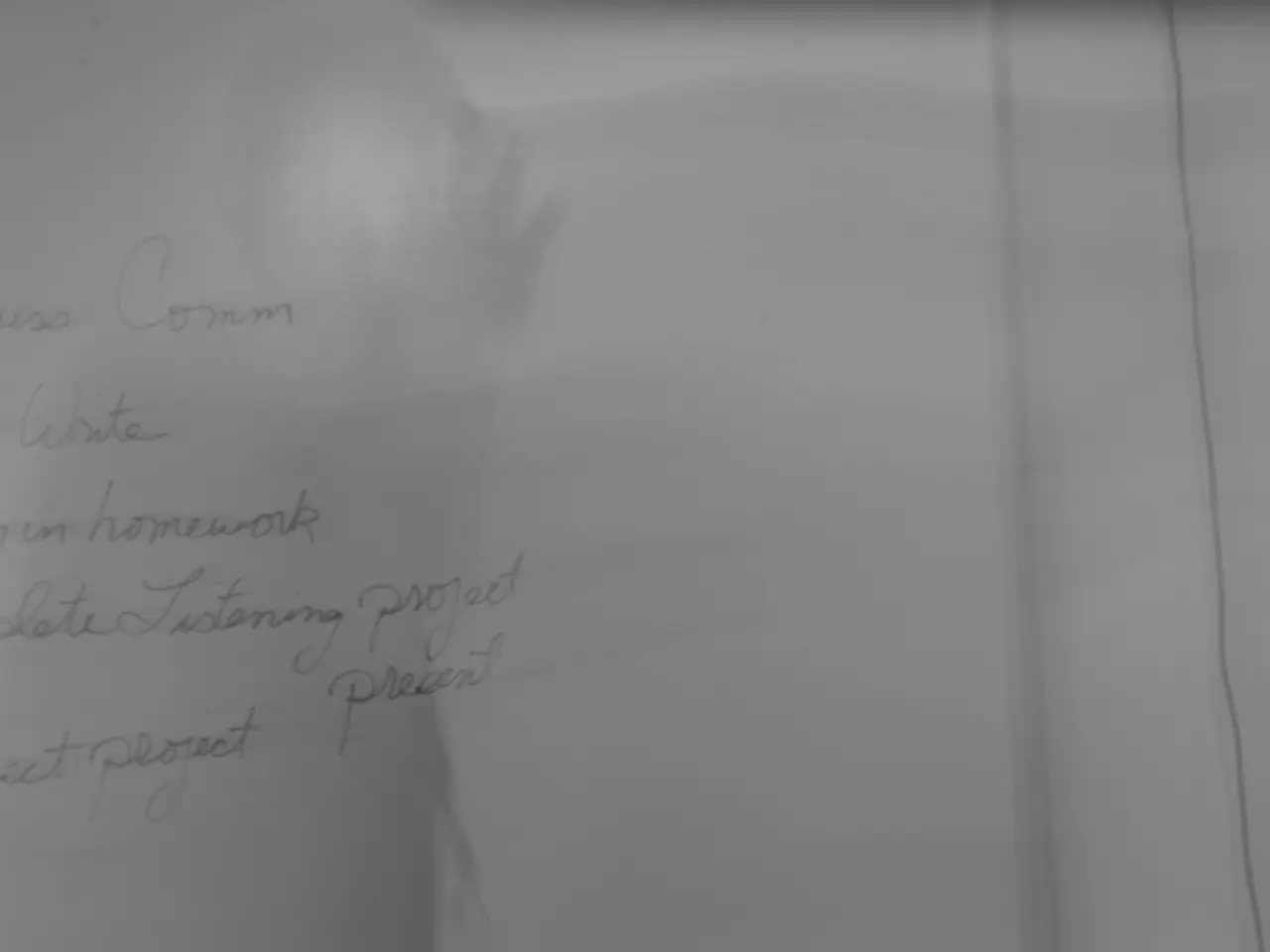Conquering Construction Quality Control: The Definitive Guide
Comprehensive manual on Ensuring Quality Assurance in Building Projects
Welcome to the ultimate guide on how to ensure top-notch quality in construction projects! Employing the right strategies and techniques can help you build structures that meet set standards, are long-lasting, and exceed expectations. We're breaking down the process into manageable steps and smart strategies tailored for your construction needs.
Establishing Quality Standards and Specifications
To begin, it's essential to establish clear and agreed-upon standards and specifications. Collaborate with stakeholders, including property owners, architects, engineers, and contractors, to define quality criteria based on project objectives, building codes, industry standards, and customer expectations. Dive deep into materials, methods, tolerances, and performance requirements to create detailed specifications that guide construction activities.
Quality Assurance: Preventing Defects and Ensuring Compliance
Effective construction quality control starts with a proactive mindset, focusing on quality assurance practices that prevent defects and guarantee adherence to quality standards. Key components of quality assurance include:
- Pre-construction planning: Develop a quality management plan during the project planning phase, include design reviews, quality control procedures, and tailor the plan to the project's specific needs.
- Supplier and subcontractor management: Evaluate suppliers and subcontractors based on quality criteria, conduct inspections, and ensure compliance with specifications.
- Material testing and inspection: Perform tests and inspections on construction materials to ensure they meet quality standards and comply with regulations.
- Quality audits: Carry out regular audits and walkthroughs to assess construction progress, identify deviations, and implement corrective actions.
Quality Control: Ensuring Compliance and Improving Processes
Successful construction quality control relies on the proper execution of quality control measures:
- Inspection and testing: Regular inspections and testing activities during critical construction phases are crucial for verifying compliance with specifications and detecting deviations.
- Documentation and reporting: Log records of inspection results, deviations, and corrective actions taken to ensure transparency and accountability.
- Corrective and preventive actions: Address non-conformities promptly through corrective actions and preventive measures, promoting continuous improvement.
- Continuous improvement: Encourage feedback, lessons learned, and process improvements based on quality control outcomes by evaluating past experiences and implementing changes to optimize project results and efficiency.
Technological Advancements in Construction Quality Control
Integrating technology into construction quality control empowers you to monitor activities more closely and make data-driven decisions. Utilize construction monitoring technologies like drones, sensors, and digital platforms to collect real-time data, analyze information, and visualize results. These tools provide insights into construction progress, quality metrics, and compliance status, helping you address issues proactively and efficiently allocate resources.
Conducting Critical Milestone Inspections
Milestone inspections serve as project checkpoints, showcasing important milestones or milestones of completion. In a milestone inspection, you assess workmanship, compliance with specifications, and overall progress. Inspections involve structural assessments, systems testing, and verification of completed tasks against project timelines.
Embracing Stakeholder Collaboration and Communication
Harmonious communication and active stakeholder participation are key to constructing successful construction quality control. Open communication among team members, subcontractors, suppliers, and clients fosters collaboration, aligns expectations, and accelerates issue resolution. Regular project meetings, progress reports, and feedback mechanisms encourage accountability and continuous improvement.
Securing Construction Excellence: Complete Quality Inspections and Monitoring
Invest in your construction project's success by partnering with experts in construction quality inspections and monitoring. Our comprehensive services ensure your investment remains protected and meets your specifications and expectations.
Regardless of whether it's residential, commercial, or industrial projects, our services offer the peace of mind you need, knowing your construction project proceeds with the highest level of quality and professionalism. Contact us at 407-663-5312 or fill out our online form to avail the services of our experts today.
[1]: "Construction Quality Assurance," International Organization for Standardization (ISO). Accessed January 27, 2023. https://www.iso.org/standards/50001.html[2]: "Construction Quality Management Plan," The American Institute of Architects (AIA). Accessed January 27, 2023. https://www.aia.org/resources/6283355-P101_Revise_QCM_FAQs[3]: "Construction Quality Control Overview," Construction Management Association of America (CMAA). Accessed January 27, 2023. https://www.cmaanet.org/docs/default-source/career-development/job-responsibilities/executive-summary-quality-control-in-construction-planning-design-and-construction.pdf[4]: "Total quality management," Quality magazine. Accessed January 27, 2023. https://www.qualitymag.com/articles/94805-total-quality-management-ii[5]: "Statistical quality control," Quality magazine. Accessed January 27, 2023. https://www.qualitymag.com/articles/83789-statistical-quality-control
- In a residential project, a thorough quality audit that incorporates stone selection and testing could help ensure that the chosen materials meet both industry standards and homeowner expectations.
- With a focus on commercial construction, effective supplier and subcontractor management plays a crucial role in quality assurance. Implementing rigorous evaluations and inspections based on quality criteria ensures conformity to specifications across all aspects of the project, including finance and construction practices.
- In the industry sector, using technology for real-time construction monitoring, like digital platforms and sensors, will help ensure compliance with quality standards, while also streamlining processes and aiding in proactive decision-making.




